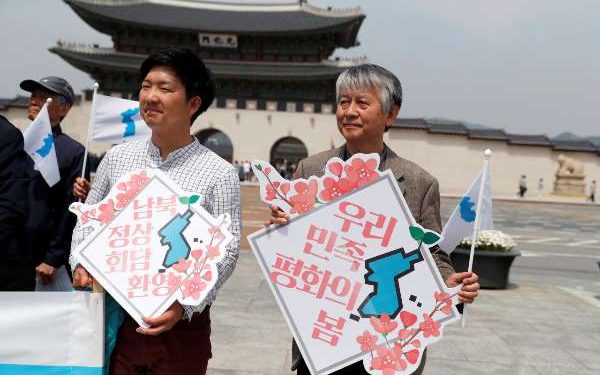Seoul, April 26: With a giant TV screen in its capital, and a break from classes for students to watch live coverage, much of South Korea will hit the pause button Friday to watch history unfold – the first time a North Korean leader crosses the border to visit.
South Korean President Moon Jae-in will welcome Kim Jong Un as he walks across the military demarcation line between the neighbours, still technically at war because the 1950-53 Korean War ended in a truce, not a peace treaty.
“It is an important moment of our history and a very good chance to feel the history,” said Park Sung-il, vice principal at Baekun Elementary School in the southern city of Gwangju, which is letting students watch events unfold on television. “Our kids can get live education about unification by watching South and North Korean leaders shake hands in real time.”
It is only the third time the leaders of the countries have met, and previous summits in Pyongyang, the North’s capital, were not broadcast live.
“There is the sense of excitement in Seoul that almost everybody is preparing for celebration Friday,” said Victor Cha, a US expert on Korea who was visiting Seoul this week.
If the summit goes well, “perhaps people in Washington may be more optimistic” that Kim’s meeting with US President Donald Trump, expected in May or June, will go well, he added. The leaders of the two sides will meet at the South Korean border village of Panmunjom, the only place along the heavily fortified border where soldiers face off directly against each other In Seoul, a gigantic TV screen will broadcast footage outside city hall. The plaza has been festooned in flowers arranged in the shape of the Korean peninsula to “create a conducive environment,” a city official said. In Gwangju, a theatre is offering free admission for people to watch the broadcast on its movie screen.
“Think about South Korean honour guards escorting the leader of our enemy state,” said Lee Shin, the head of a reunification research group in the city. “This is a very significant moment of our history.”
Reuters






































